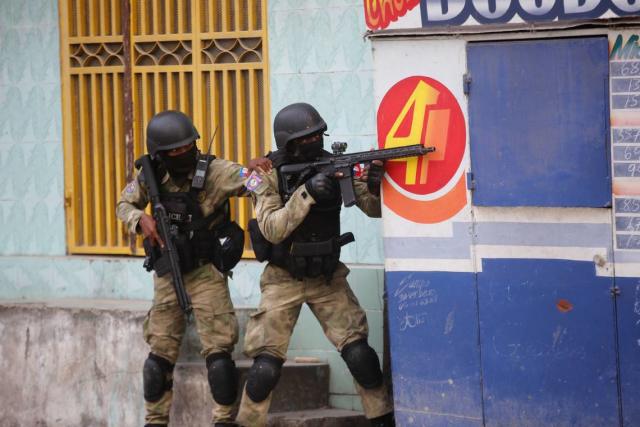Kenya has announced that it is halting the long-awaited deployment of Kenyan police officers intended to address escalating violence in Haiti.
Only 11 days earlier, Haitian Prime Minister Ariel Henry and Kenyan President William Ruto had signed an agreement aimed at expediting the deployment of officers to the Caribbean nation.
This sudden turn of events casts doubt on the future of the U.N.-backed multinational mission for Haiti.
Kenya initially committed to sending 1,000 officers to lead the security mission in July last year. However, the initiative has been entangled in legal challenges ever since.
On March 1, Henry signed an agreement with Kenya’s government to address concerns raised by a Kenyan judge who had deemed the existing plan unlawful. However, escalating violence prevented Henry from returning to Haiti.
Henry has now announced his resignation, pending the selection of a transitional council and temporary leader. The timing of these developments remains uncertain, given the fragile security situation in the capital, Port-au-Prince.
A senior Kenyan diplomatic official had reportedly said that the deployment was paused pending a clear indication of a new interim government.
U.S. officials have urged the swift appointment of members to the transition council, with assurances that the deployment of security forces will proceed once Haiti’s new leadership is established.
According to the United Nations, Haiti has seen approximately 360,000 internally displaced individuals and 1,200 deaths since the beginning of the year.
Even before Henry’s resignation, the Kenyan deployment faced significant obstacles, including opposition criticism branding the mission as too risky and against Kenya’s national interests. However, Kenyan officials asserted that the paramilitary officers were adequately trained for the task.
Kenya’s request for upfront payment for deployment costs contradicts U.N. regulations, posing a financial challenge that needs resolution.
The United States has pledged $300 million to the mission, with $100 million designated for logistics and equipment. This allocation does not enter a dedicated U.N. fund for the mission.
Further legal challenges may arise should transitional leadership be established in Haiti, with opposition figures poised to contest the deployment.
Amidst concerns and skepticism from Haitian communities and observers, previous U.N. interventions have left a troubled legacy, marked by a cholera epidemic and sex abuse scandals without adequate reparations.

